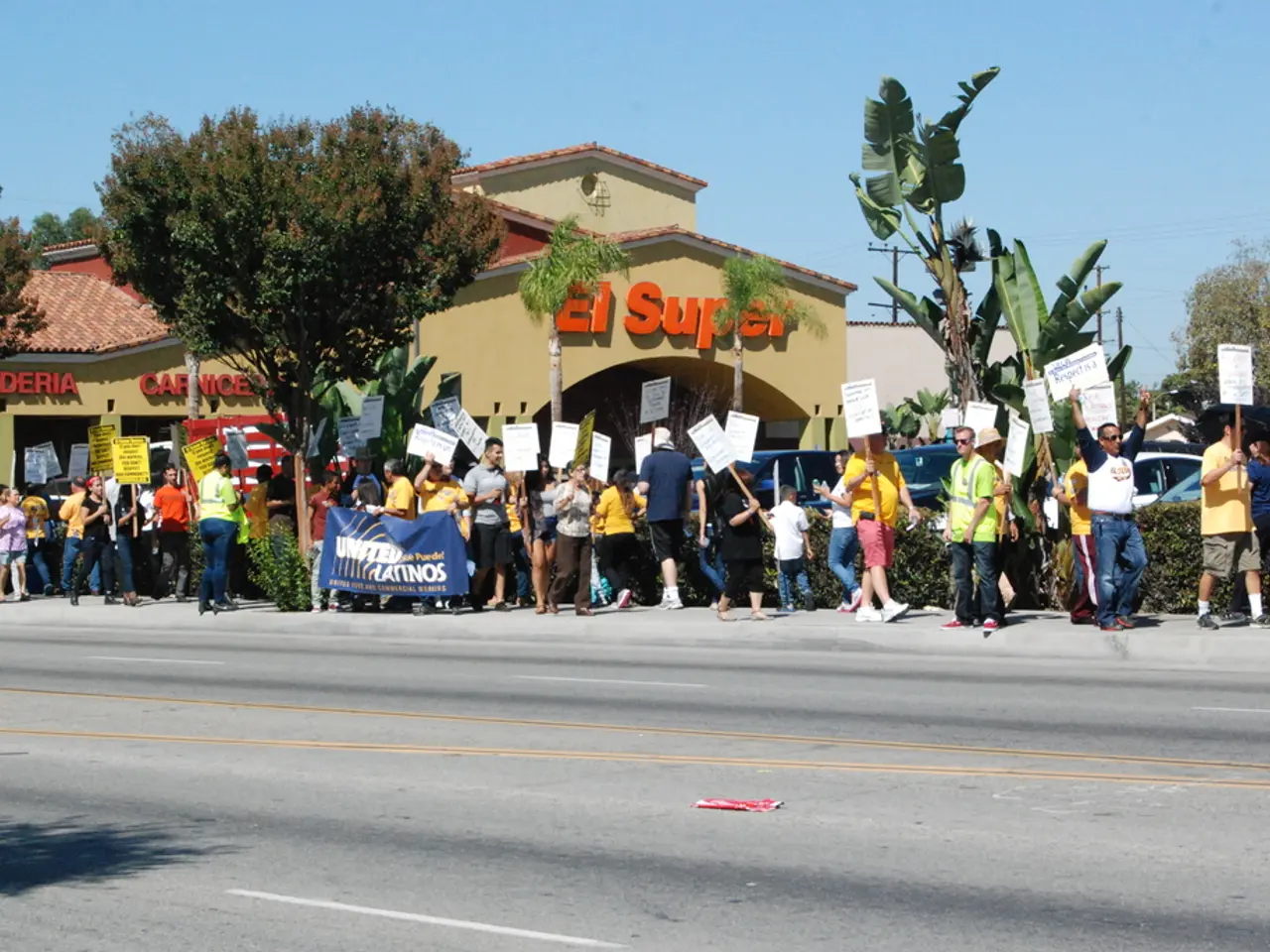Critics, including Democrats and advocates, lambaste Trump's executive directive regarding homelessness issues
In a move aimed at addressing the rising issue of homelessness, particularly in liberal cities like San Francisco and New York, President Donald Trump signed an executive order in 2025. The order, however, has sparked significant criticism due to its approach and potential impacts.
The order incentivizes cities and states to impose stricter measures against open drug use and street camping by linking federal funding to enforcement rather than support services. Critics argue that this emphasis on civil commitment and criminalization over housing solutions could worsen the homelessness crisis.
Key criticisms and impacts include:
- Criminalization of Homelessness and Mental Illness: The order directs states to treat homelessness and mental illness as crimes, expanding police involvement and institutionalization instead of providing stable housing and healthcare. Advocacy groups warn that this approach will only exacerbate homelessness, as it punishes poverty and sickness rather than addressing root causes like housing affordability.
- Defunding Proven Housing-First Programs: Funding is prioritized for jurisdictions that enforce sobriety and public camping bans, effectively cutting support for "Housing First" models, which are evidence-based approaches proven to reduce homelessness by providing housing first, then supportive services. Experts argue that withdrawing support from Housing First is counterproductive and will lead to more people living on the streets.
- Forced Hospitalization and Civil Commitment: The order encourages “revival” of civil commitment to place homeless individuals with serious mental illness into long-term institutions without consent, raising concerns over due process violations and ethical issues. Critics see this as a punitive measure that disproportionately affects vulnerable groups such as people of colour, LGBTQ+ individuals, and the disabled.
- No Effort to Address Housing Costs: The executive order reportedly does not tackle the core driver of homelessness—skyrocketing rents and housing shortages. Critics emphasize that making homelessness a crime and diverting funds away from supportive housing programs will only exacerbate the crisis, leading to more people living unsheltered.
- Political and Regional Impact: While mostly impacting liberal cities that adopt harm-reduction and non-criminalizing approaches, like San Francisco and New York, the order pressures all cities to adopt stricter enforcement measures. This has caused uncertainty especially in states like Oregon, where local laws conflict with the federal push to penalize street camping.
In recent years, homelessness has become a bigger problem, particularly in states like California where there aren't enough homes to meet demand. Efforts by Gov. Gavin Newsom and Democratic mayors in California to get people off the streets and into treatment have been ongoing. San Francisco Mayor Daniel Lurie has even banned homeless people from living in RVs and urged people to accept the city's offers of shelter.
Despite these efforts, the President's executive order has been met with widespread condemnation. Expert and advocacy groups argue that the order is misguided, punitive, and rooted in outdated myths that criminalize poverty and mental illness. They assert that it will increase homelessness, strain local resources, and undermine decades of progress in housing-first and harm-reduction policies.
[1] https://www.homelessnessusa.org/resources/criminalization-of-homelessness/ [2] https://endhomelessness.org/resource/housing-first/ [3] https://www.sfchronicle.com/bayarea/article/Trump-s-2025-executive-order-on-homelessness-15799082.php [4] https://www.npr.org/sections/codeswitch/2025/02/24/969520037/trump-s-executive-order-on-homelessness-could-have-dire-consequences-for-vulnera
- The world has witnessed a surge in criticism regarding President Donald Trump's 2025 executive order on homelessness, particularly in liberal cities like San Francisco and New York.
- The executive order, aimed at addressing homelessness, incentivizes stricter measures against open drug use and street camping but overlooks support services, causing concern among experts that it could worsen the crisis.
- Key concerns include the criminalization of homelessness and mental illness, defunding proven Housing-First programs, forced hospitalization and civil commitment, lacking efforts to address housing costs, and potential political and regional impacts.
- Advocacy groups and experts argue that the order is misguided, punitive, and rooted in outdated myths, asserting it will increase homelessness, strain local resources, and undermine decades of progress in housing-first and harm-reduction policies.
- In contrast, efforts by California Governor Gavin Newsom and Democratic mayors have been ongoing to get people off the streets and into treatment, yet the President's executive order has been met with widespread condemnation.
- The authority of city leaders in dealing with homelessness-related issues, such as San Francisco Mayor Daniel Lurie's ban on homeless people living in RVs and encouragement of accepting the city's offers of shelter-has been challenged by the federal order, creating confusion and controversy in the realm of policy and legislation.




